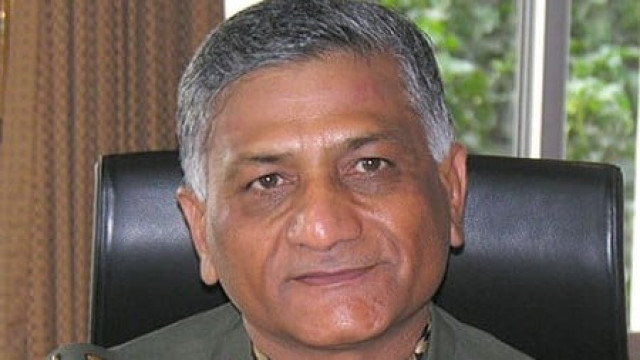Civil-military relations in India
General Singh’s plaint is not very serious when you look closely at it. What is happening is just delay.

General Singh had not earned himself kudos earlier for asking his date of birth to be changed so that he could be army chief for some more time. After the Supreme Court refused to hear this strange request, he must have been miffed and, given an unusually vindictive personality, he apparently fired off the letter to the prime minister, perhaps, bypassing the defence minister who, unlike his Pakistani counterpart, calls all the shots when it comes to the Indian armed forces. General Singh has reacted to the leak — as he was expected to — but when all is said and done, it could be another ploy.
What was the Indian Army’s reaction to this act of defiance? So far the Chief was fighting his own war without any support from within his institution. Surprisingly, however, the reaction received from the head of its Northern Command came out with qualified support: “There must be some substance behind the Army chief’s observations made in the letter to the Prime minister on defence preparedness; but there is nothing to worry about the Northern Command which is fully prepared to take on any challenge. Our troops are effectively guarding the borders with Pakistan and China”.
Defence Minister AK Antony, who should have hit back at the army chief, has surprisingly toned down his reaction, probably to lessen the intense media assault from the opposition BJP, saying: “There were rogue elements trying to create a rift between the government and the army. There was no battle between the armed forces and the Government of India, and the army and the chief were very much a part of it”. The other reason could be that General Singh had also waved the red flag earlier over some military purchases — charges of corruption that the Congress Party is particularly sensitised to, and which could precipitate Mr Antony’s resignation. Unfortunately, the charges made by him have led to a further scandal: that of the accused senior officers lashing out at their chief.
The Indian Army is strictly subservient to the civilian elected government. It is not usual for the senior officers to go public with grievances, but there have been instances in the past — though rare — when a temperamental general has spoken out and, quite understandably, was shown the door with premature retirement. Every time this happens, it looks bad and the Indian media runs away with the story. But the Indian Army, since the clash with the Chinese Army in 1961, has given a good account of itself, fighting successful wars with Pakistan. It won a decisive victory in 1971 and took Pakistani prisoners of war and in 1999 blunted Pakistan’s Kargil Operation.
General Singh’s plaint is not very serious when you look closely at it. What is happening is just delay. India’s successful economy has allowed the government to set aside $12 billion to buy new aircraft for the air force while other arms are expected to be revamped too, keeping the military budget down to 2.5 per cent of the GDP. The only problem is that of delay and, of course, corruption. Given that the state of civil-military relations in India usually do not deteriorate to this level, this episode could, at the very least, affect the Indian public’s perception of the Indian army. Prime Minister Manmohan Singh is embarked on a positive path of normalisation through trade with Pakistan, while the latter is too busy with its internal trouble and too tangled with the Americans to take advantage of the Indian ‘weakness’. With China too, India has followed a wise policy of normal relations despite outstanding border disputes.
Published in The Express Tribune, April 1st, 2012.















COMMENTS
Comments are moderated and generally will be posted if they are on-topic and not abusive.
For more information, please see our Comments FAQ